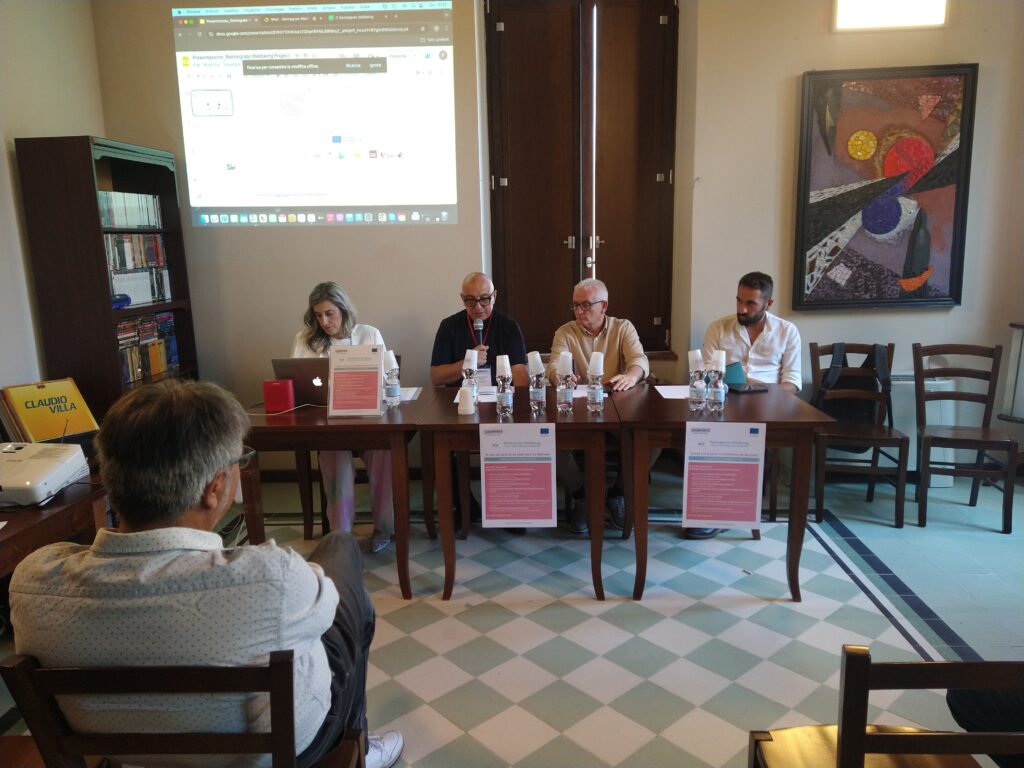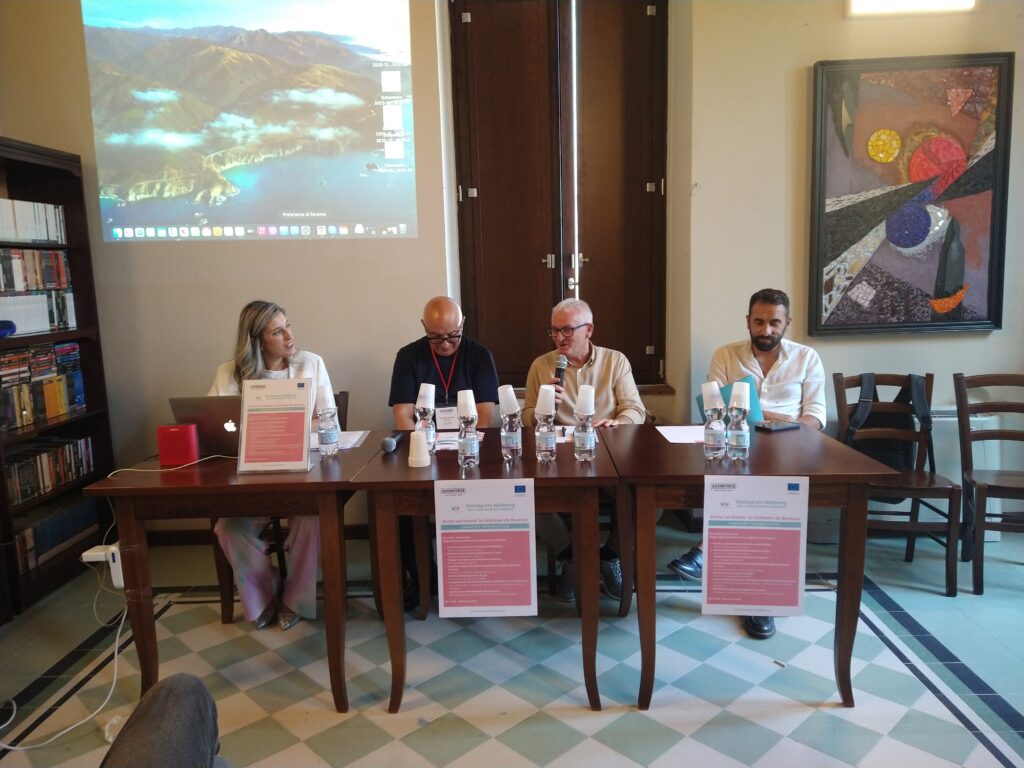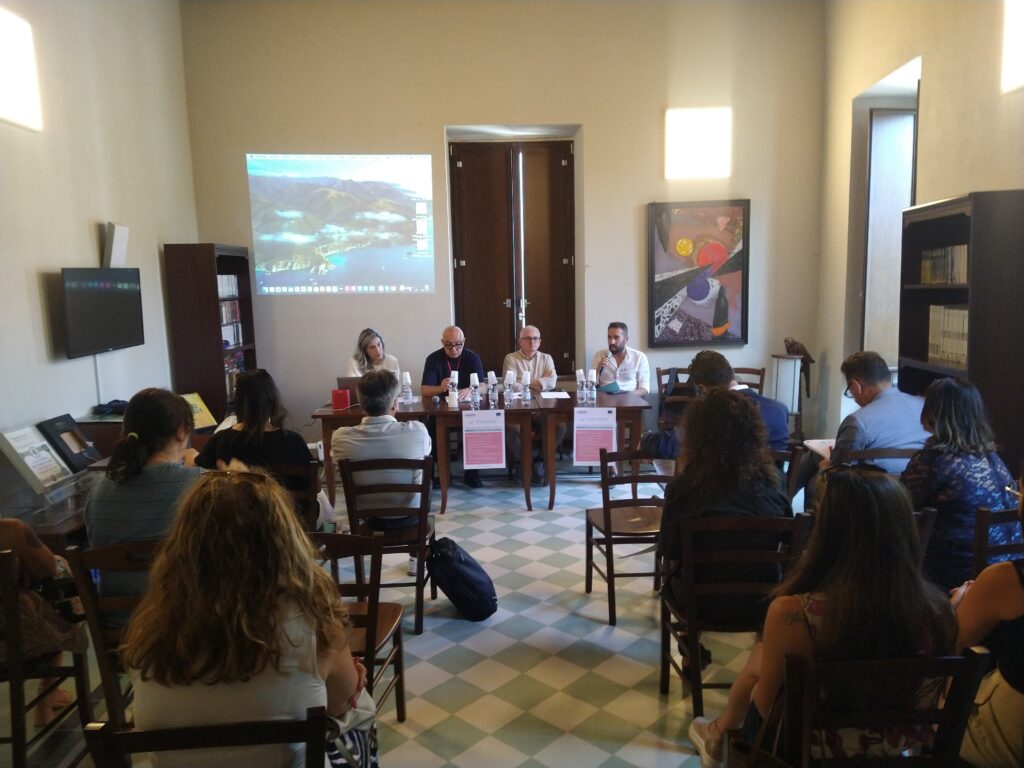When we talk about companies, organizations, and social enterprises, we are primarily talking about people—men and women who live in a work environment, who experience problems and satisfactions, anxieties and joys, and who spend a significant amount of their days, their lives, in that environment with their colleagues. From this can arise moments of stress that may manifest in various ways and can become more or less burdensome. Burnout syndrome, as defined by the WHO, is exactly this: “a state of chronic work-related stress characterized by the feeling of complete exhaustion of one’s physical and mental energies.” The Erasmus+ European project “Reintegrate Wellbeing,” which started in 2022, addressed this issue and was developed with the aim of supporting employees who have been victims of burnout, often unemployed for a long time, helping them reintegrate into the labor market by showing them how to regain motivation and confidence and how to reintegrate, as well as encouraging employers to create a healthier work environment in terms of employee engagement and well-being.
Axonforce, our digital services and technology agency, a partner in the project, organized a Mini Job Fair in Sant’Angelo Le Fratte on August 22, involving professionals from the field who made a significant contribution, adding value to the discussion on burnout and creating meaningful knowledge and connections among the participants.
The first speaker was Angelo Lacerenza, who, in addition to moderating the conference, contributed his experience from the social sector: a social worker and Italian language trainer for foreigners, he works with unaccompanied foreign minors. In his case, it involves dealing daily with young people who carry heavy traumas, who arrive in Italy devastated and with the strong hope of finding someone they can trust to help them live a dignified life and find their way in a new country, far from their families. Angelo and his colleagues face delicate situations every day that concern young lives seeking a better future: their problems become common and shared, and finding solutions to them becomes the primary goal of each workday.
We then heard from Donato Summa, FpCgil secretary and emergency room worker in Potenza, who spoke to us about the healthcare environment: the Covid pandemic has shaken everyone and left a trail of fear and anger that will be difficult to erase. Additionally, they are also forced to deal with problems related to political decisions, such as staff reductions, which inevitably impact doctors and healthcare personnel, and the challenging situation of helping professions and healthcare in general in Italy.
Alessio Lorusso, on the other hand, as an HR manager at a labor agency, explained how burnout situations almost always stem from organizational problems such as low pay, lack of clear and precise objectives, and poor personnel management. Real change, therefore, must originate within the organization itself, which must be capable of intercepting, preventing, solving, or avoiding this problem through different and new behaviors, attitudes, strategies, and, if necessary, through the help of the Middle Manager, a specific figure whose role is to understand and listen to the worker with empathy and humility to find the right answers to their needs and demands.
We also received input from Eleonora Valè, a neuropsychologist of well-being, who provided a technical perspective and clarified, providing us with national-level data and percentages on this topic, methods and strategies for identifying the origin of burnout due to work-related stress, treating it, and overcoming it.
This event was, therefore, like opening a window on the issue of burnout through a discussion filled with testimonies from experts and professionals who accompanied us, each with their own experiences and stories, on a significant and impactful journey not only on a formative level but also on a human one.









